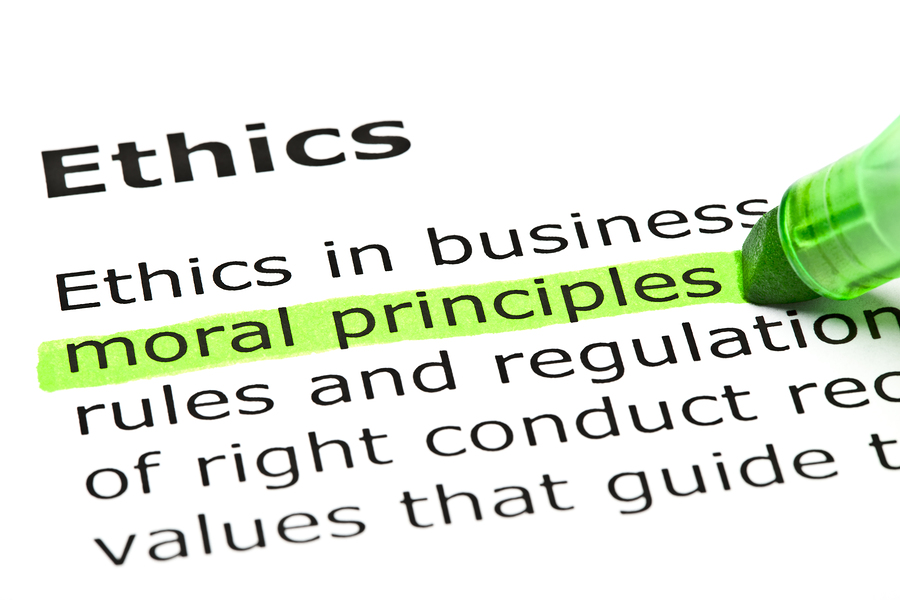Seven years ago I wrote a post about the morality clause in book contracts. It was met with a collective yawn.
Today the landscape is a little different and I hope you will take the time to read this carefully. From Hollywood suddenly trying to find a moral compass to corporations trying to define bad behavior, the issue has become the latest buzzing conversation.
The issue is not one to be dismissed lightly. Sinful behavior, in any form, is deadly to the soul (Romans 6:23). This blog is not an attempt to discuss the overall issue or try to define the differences between sexual abuse, sexual harassment, or inappropriate/rude behavior. Instead I’d like to focus on how publishers have addressed the issue in their book contracts.
While the general market is struggling to find a moral standard, the Christian community has long had mechanisms in place to address many of these things. Even the “Pence Rule” is nothing new.
When it comes to book contracts many faith-based publishers have included a “Moral Turpitude” clause for decades. In case you don’t know what “Moral Turpitude” means, it is well defined in this post on Wikipedia. It is understood in the legal community as actions or activities that can get you fired from your job, deported if you are a foreigner in the U.S. on a visa, or have your contract cancelled if you are an author.
Here is a typical version of the clause found in many of the contracts our agency negotiates:
MORAL TURPITUDE. In the event Author is publicly accused of an act of moral turpitude (substantiated by the preponderance of evidence, a court decision, or Author’s own admission), a violation of any Federal law or any other conduct which subjects or could be reasonably anticipated to subject Author or Publisher to public ridicule, contempt, scorn, hatred or censure, or could materially diminish the potential sales of the Work, Publisher will have the right to terminate this Agreement upon written notice to Author of the public disclosure of such conduct or alleged conduct. In the event of such termination of this Agreement, Publisher will have the right to demand from Author and receive payment within thirty (30) days of the demand, a sum equal to all advances paid to Author under terms of this Agreement that have not been recouped by Publisher prior to said termination. Upon such payment all rights granted to Publisher in the Work will terminate and vest exclusively in Author, provided that Publisher will have the right to sell or otherwise dispose of all remaining copies of the Work in any manner Publisher deems appropriate.
I do not begrudge a publisher for including this clause in a contract. It makes perfect sense. There are many cases where a very public Christian figure has had to step down for immoral behavior. When that happens, the publisher is left holding a bag full of books and no place to sell them. While I was preparing this post Bethany House Publishers (a division of the Baker Publishing Group) canceled the contract of an author and his forthcoming books after it was revealed that the author had a sexual encounter with a teenage girl 20 years ago. If you read the above clause again you’ll note that the first sentence could very well have been applied by the publisher to address this tragic situation.
If you are about to sign a contract with this clause, read it closely. For example, I once negotiated a contract with two co-authors. This moral turpitude clause had to be carefully written so that if one of them went off the rails the other writer would be protected and not be held liable for the actions of the offending writer.
Not everyone is in agreement regarding the use of the clause. Years ago, Richard Curtis, agent extraordinaire, expressed surprise at a morality clause that had begun to appear in contracts from HarperCollins. [Warning: there is Adult/crude content both in his post and the comments.] In response to Richard Curtis, Ursula LeGuin, author of some legendary science fiction and fantasy, posted a riff satirizing the morality clause in book contracts. (see #12 on this page.) In light of recent events, they may not write the same thing today.
Note that for many years most product endorsement contracts include a morals clause. One article called it the “Keep Your Pants On” clause. The morals clause was there to protect a company from their celebrity spokesperson being caught doing bad things and hurting the company brand. The article cited the well documented behavior issues of Charlie Sheen and Tiger Woods as examples. Today there are a lot more public examples to choose from.
The bottom line is “Don’t do bad things!” and then you won’t ever have to worry about a clause like this being misinterpreted or misapplied to you. Seriously, it is as simple as the admonition to treat one another with respect and honor. Inappropriate behavior is never okay.
In case you are interested, the New York University Journal of Intellectual Property and Entertainment Law has a brilliant and exhaustive 35 page article published in 2015 on the history of the morals clause and what it means for today.
[Some of the above was repeated from my post of January 19, 2011 for the sake of simplicity.]





As I read it, the above clause would be broad enough to cause me serious pause if I were submitting a manuscript with any religious material to a secular publisher. How difficult is it to allegedly say something that causes public ridicule or contempt when you’re a Christian in a world whose mind is run by the flesh? Then to demand an immediate back-payment of the advance? I know that the reversion of rights section makes abuse of that much less likely, but what if a publisher were facing serious financial strain and desired to cut their losses while they could?
All that being said. . . to ask for changes to that clause is, I suppose, a great way to make your publisher paranoid. Hah!
Brennan,
Your make my point.
Read your contract carefully and talk to your agent about a scenario as you’ve described above.
However, a publisher is in the business of making money on the books they produce. To drop a book would injure their mission to be profitable.
Note the language of the above clause is based on whether you have been accused of moral turpitude. Not whether or not you have been ridiculed for your faith. Those are different things.
Moral Turpitude, by one definition, is an “act of baseness, vileness, or depravity in the private and social duties which a man owes to his fellowmen, or to society in general, contrary to the accepted and customary rule of right and duty between man and man.”
If your faith is an issue, it is unlikely that publisher would have contracted your book in the first place.
Steve, thank you for your very timely posting, given the situation many folks are dealing with today, both victims and perps. It’s good to know that publishers are concerned. I saw some books at Sam’s club the other day which were written by a man who is, shall we say, “out of favor” as a result of some misbehavior on his part. Even though it was in the past, I had no desire to even pick up his book. I wonder how many other folks feel the same way and are avoiding that individual. The publisher has to be protected from the unsavory acts of its authors, so this clause is a good thing.
Sheri,
A good point. In some cases, in the Hollywood world, it is hard to watch a film and separate the actor or actress, from their real world persona.
The same can apply to books, as you experienced while recently shopping.
The problem I have with these clauses is the example of the pastor who did something bad twenty years ago. Does that mean that since I “lived in sin” with someone twenty five years ago, I may as well forget publication, because it might become public some day?
I think the normal statute of limitations should apply at some point. To use the example of the pastor again, if he never engaged in such behavior in those subsequent years, shouldn’t we – and the publisher – extend some grace as Jesus would?
On the other hand, I can see the publisher’s point of view. It’s possible that the revelation would cause the pastor’s books to never sell another copy, which would end up a significant financial loss.
I just feel that “moral line” can be a bit murky, and that makes me nervous as a writer who has lived an imperfect life.
In the specific case of this pastor, it was not dealt with in a way that most people were happy with, and when it re-surfaced recently, it was again handled in a questionable way. I believe that was the issue in this specific case, not that something happened 20 years ago and was handled and was in the past. It wasn’t entirely dealt with twenty years ago, although I guess that always depends on who you ask.
Andra,
Each case with regard to this morals clause would be determined on its own merit (or to be more accurate, “lack of merit”.)
In the case mentioned above the pastor had the encounter while in his role as a youth pastor in a church, 20 years ago. As Jamie wrote above, this case created a situation where the publication of this man’s book would likely be effected by the issue. (the new book was on the topic of marriage).
Thus the clause is not a question of whether someone has lived the “perfect” life. We know that isn’t possible, except in one case. Instead, the clause is there to provide a mechanism for a publisher to withdraw from a project if there is something that has happened to make the book unsalable.
Wow, this was great information to learn! It’s nice to hear that there is \a base line of moral of standard and accountability with publishers! I love the summary of “Don’t do bad things!” 😀 The world would be a lot better place if people listened to that.
Great article – thanks! It leads me to wonder: how much about our past should we disclose to a publisher? I’ve broken no laws (well, there was that time I stole a keychain from the 5 & 10 – oops!), but we do all have sin and, though I am so blessed to have been forgiven, it’s not something I’d share at a job interview. I suppose the Spirit will direct us should we find ourselves in that situation, but I wonder if there’s a standard? And I assume the publisher doesn’t want a catalog of our past sins either (like the time I was 12 and lied to my mom; and the time I was 13 and lied to my mom; and… you get the idea.